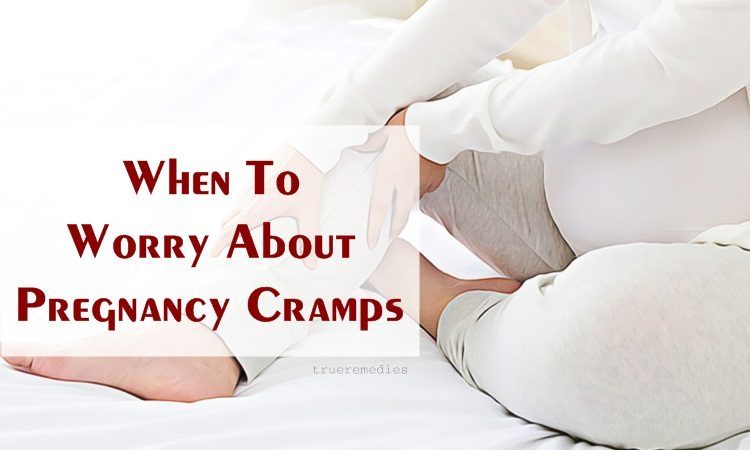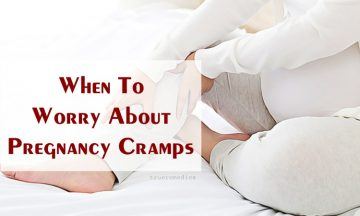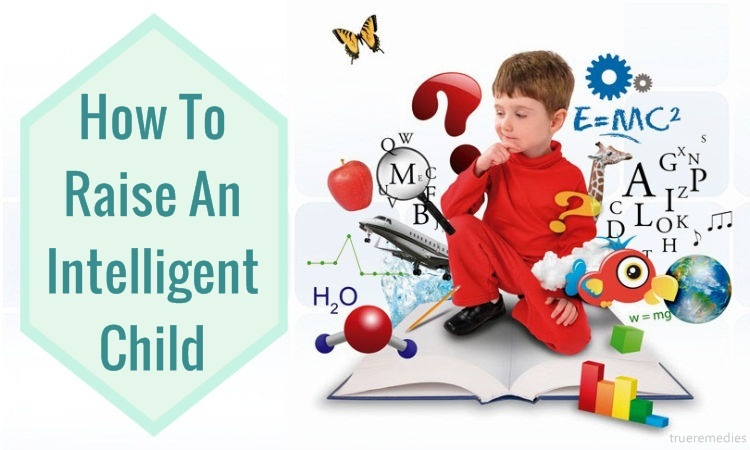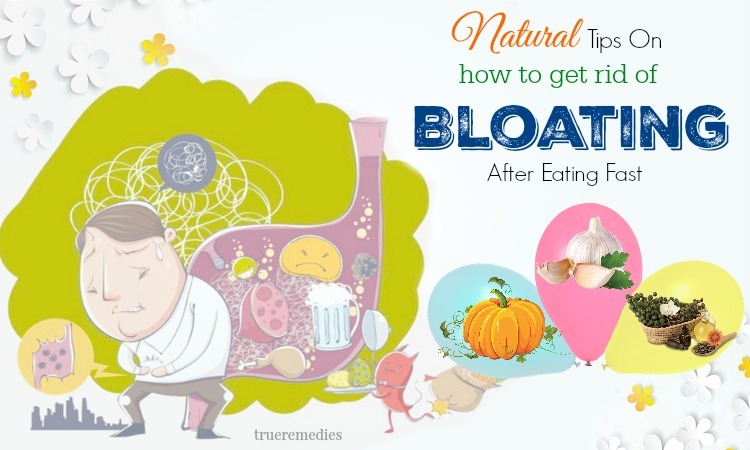Table Of Contents
The first trimester is a challenging and difficult period of a woman when she is on the journey of becoming a parenting mother. During these first three months of pregnancy, a woman has to experience many emotional, physical and behavioural changes. Furthermore, the first trimester also comes with numerous symptoms like morning sickness, nausea, constipation, breast tenderness, weight gain, cravings, and even painful cramps. Have you suffered from short or long cramps in your lower abdomen in the early stage of your pregnancy? Some people worry about it a lot because they think it may indicate a miscarriage. So, what is its truth? And are pregnancy cramps in the first trimester dangerous? In TrueRemedies, we will go over the facts about cramps during the early stage of pregnancy and find out when to worry about pregnancy cramps and pains.
- Top 21 Ways To Deal With Vomiting During Pregnancy
- Good Foods For Pregnant Women To Eat
- 29 Best Solutions For Vomiting Sensation (This article was medically reviewed/fact checked by Heather M. Duquette-Wolf, RD, CSSD)
Pregnancy Cramps And Pains During The First Trimester – What Should We Know?
I. Why Are You Cramping?
Cramping can be an early sign of pregnancy you may experience during one or two weeks after conception. The fertilized egg goes through the fallopian tubes and reaches the uterus where it attaches itself to the uterine wall[1]. This implantation process results in pregnancy cramps on the specific spots.
Besides implantation cause, the cramps are also due to your body’s changes during this period. For example, during the first and second trimester of pregnancy, you have to be familiar with the fact that you are carrying a baby in your womb. The muscles of the uterus will start to grow, stretch and expand over time, which gives a pulling feeling in your stomach. As a result, it leads to aches and pains.
Furthermore, if you do not drink enough water, your muscles are likely to cramp. Other problems of digestion due to pregnancy, such as constipation, bloating, and gas are also reasons why you are cramping.
Some pregnant women also experience cramps while doing their regular exercise. This activity may put additional stress and pressure on your muscles, resulting in a normal cramp. It will stop when you take a rest.
Cramping in the first three months is normal and harmless, most pregnant women can experience. The slight cramps aren’t a sign of a life-threatening or severe problem. But it doesn’t mean you can discount the pain because more serious hidden issues can cause it. It is when to worry about pregnancy cramps. We will tell you later after revealing some useful ways to relieve the normal cramping.
TrueRemedies Partner Solutions

Need a Help from the Leading Expert Online, Available 24/7?
They’re all here and ready to answer your questions online or by phone. Keep asking questions until you get the answer you need.
II. How To Relief From Normal Cramping
If you go through the normal pregnancy cramping, don’t worry or feel too much gloomy about it. Several things can give you significant relief. For example, scale back when you do physical activities. Avoid staying too long in a position that induces cramps.
Before bedtime, pregnant women can take a warm bath to relax and ease the tense muscles. Furthermore, when a cramp attacks, you need to stop what you are doing and take a rest comfortably and quietly.
Besides, you can place a bottle of warm water wrapped in a clean and thick towel over your ache spots for a few minutes.
Moreover, wearing a maternity belly band such as Velcro elastic one under your belly is also an excellent relief for a cramp. You need to make sure that the belt is adjustable without being too restrictive.
A good massage also helps to relieve the pain and discomfort effectively by stimulating blood circulation in your muscles.
If you try many things without seeing any improvement, take the recommended dose of paracetamol[2]. Remember to consult a doctor or a health care provider before taking.
Do not forget to drink enough water and get good sleep during pregnancy.
III. Is Pregnancy Cramping Dangerous?
Cramping is normal during the first period of the pregnancy. However, it can become dangerous if caused by some serious issues.
- Miscarriage: If mild or sharp cramping pain happens along with vaginal spotting, it could mean you have a miscarriage. Although some healthy pregnant women also experience cramping and spotting at the same time, it is still crucial for you to make an appointment with your doctor immediately.
- Ectopic pregnancy: Ectopic pregnancy in which the egg is fertilized outside the uterus is a dangerous condition. The painful cramping is a sign of this condition, and it needs to be treated by a professional doctor.
- Preterm labour: The preterm labour could cause abdominal pain[3], increased pressure and cramping because the cervix starts to stretch before 37 weeks
- Preeclampsia: It is a medical condition when pregnant women suffer from high blood pressure and have protein in their urine. Intense pain in the upper abdomen can be a sign of severe preeclampsia.
- Placental abruption: This condition is life-threatening because the placenta goes away from the uterus before the labour. Its common symptom is a painful cramp[4].
- Urinary tract infections (UTI): The cramping pain in your lower abdomen could be painful if it is caused by a urinary tract infection.
These conditions are when to worry about pregnancy cramps and pains.
IV. How Long It Last
Pregnant women also ask how long the cramping lasts. That depends on the causes of this problem. For instance, implantation cramps go away after one day while pains caused by UTI will not finish until you seek medical treatment.
On the other hand, the pregnancy cramping due to a stretching uterus is intermittent. That means it does not last for long but will be there.
V. When Should You Call A Doctor
Although cramps during pregnancy are not an indication for a problem, you still need to make an appointment with your midwife or doctor if they follow these serious signs:
- Severe pain without going away
- Contractions and lower abdominal pain
- Cramping accompanied by the pain in your neck or your shoulder
- Bleeding, watery discharge, vaginal cramping, dizziness, and gastrointestinal symptoms
- A stinging pain when you are urinating
We hope that you now understand the necessary information and find this article about “when to worry about pregnancy cramps and pain during the first trimester” useful. Any questions can be left in the comment section, and we will answer them as soon as we can. Thank you for your reading.









